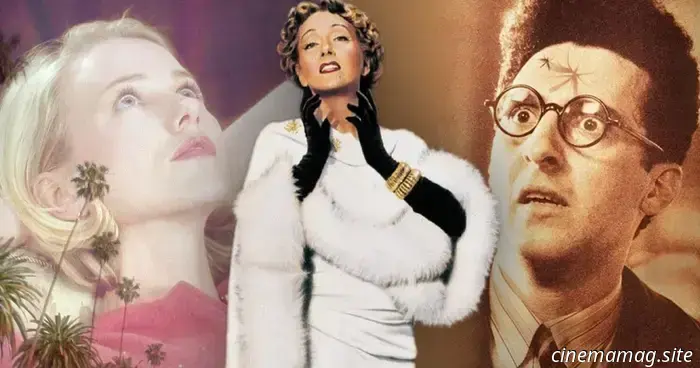
10 Excellent Films About Filmmaking
Simon Thompson highlights ten exceptional films centered around the filmmaking process…
The role of a filmmaker is immensely rewarding artistically, yet it also demands a significant emotional toll, especially in an industry that is frequently grappling with an existential dilemma about whether it prioritizes art or commerce. This environment serves as an excellent foundation for storytelling, which explains why many cinematic masterpieces often focus on the process of making films. As you might discover while perusing a list of the 200 greatest movies at 2 AM, many of cinema's finest works revolve around the creation of film itself. The ten films selected for this list are noted for their overall quality and for their exploration of the triumphs and challenges inherent in the creative process.
**The Player (1992)**
Directed by Robert Altman and based on a screenplay by Michael Tolkin, who also wrote the novel, The Player delivers a darkly humorous take on Hollywood that would please both Billy Wilder and Nathanael West. The plot follows Griffin Mill (Tim Robbins), a driven executive involved in script development. When he begins receiving death threats, he suspects a rejected screenwriter may be behind them, leading him to take increasingly drastic measures to validate his fears. With a remarkable performance from Tim Robbins and a talented supporting cast, including Vincent D’Onofrio, Whoopi Goldberg, and Fred Ward—alongside various celebrity cameos—The Player skillfully balances satire and a gripping crime narrative. For those cynical about the “magic” of the movie industry, this film offers a refreshing counterpoint to the syrupy narratives often found in filmmaking stories. Unfortunately, such biting satire seems unlikely to be produced in today’s Hollywood, which lacks a sense of humor about itself and has long abandoned mid-budget adult dramas.
**The Bad and the Beautiful (1952)**
Vincente Minnelli’s The Bad And The Beautiful is often labeled a melodrama, and while that holds some truth, it underplays the sharp and incisive nature of Charles Schnee’s screenplay. The film tracks the ruthless ambition of producer Jonathon Shields (Kirk Douglas), who, despite being the son of a loathed studio head, has learned the industry’s harsh realities. As Shields climbs the ladder, he risks jeopardizing his relationships with director Fred Amiel (Sullivan), actress Georgia Lorrison (Lana Turner), and screenwriter James Lee Bartlow (Dick Powell). What makes The Bad and The Beautiful resonate is its clever script, unflinching portrayal of Hollywood’s backstabbing culture, Minnelli’s exquisite direction (notably in the stunning funeral scene at the film's outset), and the captivating chemistry between Douglas and Turner. During this time, Douglas was at the peak of his powers, portraying Shields not as a cartoonish villain but as a charming manipulator, compelling audiences to root for him despite his monstrosities. If you seek a film that merges the best elements of film noir and romantic drama, The Bad and The Beautiful delivers.
**Mulholland Drive (2001)**
Celebrated as the best film of the 21st century, David Lynch’s Mulholland Drive is an enigmatic masterpiece rich in surreal imagery that invites multiple interpretations upon repeated viewings. Most agree that at its heart lies Lynch’s dark take on the nature of fame and the human desire for recognition. The narrative follows Betty (Naomi Watts), an aspiring actress who arrives in Los Angeles hoping to attain fame and fortune. There, she encounters Rita (Laura Harring), an amnesiac who lost her memory in a car accident. Over nearly two and a half hours, Lynch manipulates our understanding of narrative, time, and reality, creating a dreamlike quality with noir-inspired visuals and Angelo Badalamenti’s haunting score. Lynch presents Hollywood as a place that offers superficial allure while masking deeper truths, a recurring theme throughout his work. Characters like Justin Theroux’s Adam Kesher represent the struggle to maintain artistic integrity amid overarching interference, exemplifying Lynch’s assertion that Hollywood is the easiest place to lose one’s identity. For film lovers who have yet to see Mulholland Drive, it’s essential viewing.
**Sunset Boulevard (1950)**
Billy Wilder’s Sunset Boulevard cleverly transcends genre conventions, blending elements of film noir with dark satire about the nature of fame and the fickleness of the movie industry. The story follows Joe Gillis (William Holden), a struggling screenwriter who seizes the opportunity to write for the faded silent film star Norma Desmond (Gloria Swanson). Joe soon discovers he’s bitten off more than he can handle as Norma exists in a delusional world of her bygone glory, pushing their collaboration into strange territories. By casting Swanson, who had endured a long career decline during the sound era, and featuring cameos from silent film legends like Buster Keaton, Wilder delivers a unique critique of stardom characterized by sharp wit. With a spectacular script full of memorable lines, an ideal











Other articles
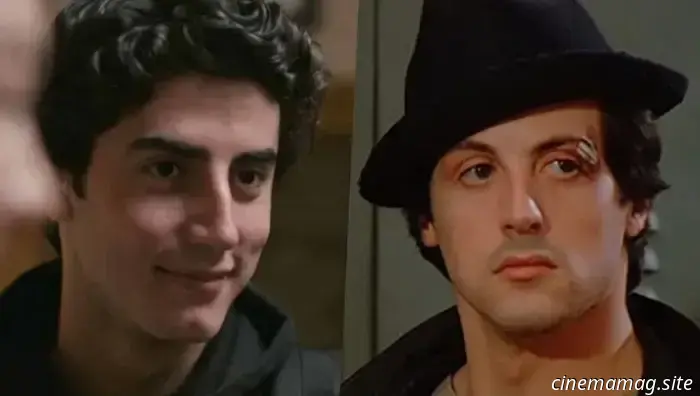 Anthony Ippolito will portray Sylvester Stallone in the film I Play Rocky.
Recently seen portraying a young Al Pacino in The Offer, the Paramount+ series that explores the creation of The Godfather, actor Anthony Ippolito is returning to the backdrop of 70s Hollywood to take on the role of a young Sylvester Stallone in I Play Rocky. The film is directed by Peter Farrelly (Green Book) and is based on a script by […]
Anthony Ippolito will portray Sylvester Stallone in the film I Play Rocky.
Recently seen portraying a young Al Pacino in The Offer, the Paramount+ series that explores the creation of The Godfather, actor Anthony Ippolito is returning to the backdrop of 70s Hollywood to take on the role of a young Sylvester Stallone in I Play Rocky. The film is directed by Peter Farrelly (Green Book) and is based on a script by […]
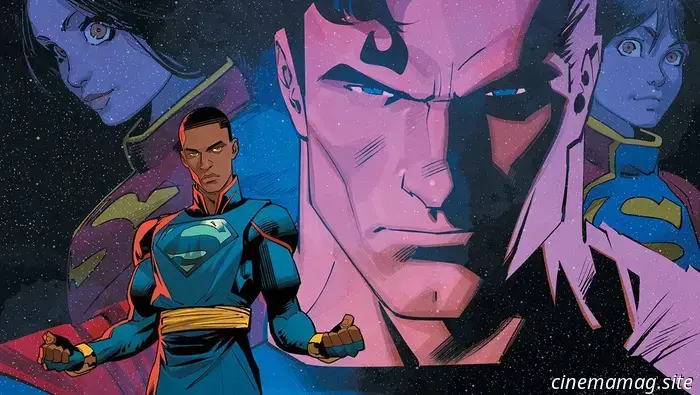 Adventures of Superman: The Book of El #1 - Comic Book Sneak Peek
DC Comics is set to release Adventures of Superman: The Book of El #1 on Wednesday, and you can check out the official preview of the issue below… Superman is back! Beloved creators from Future State: Superman: House of El, Phillip Kennedy Johnson and Scott Godlewski, join forces again for Adventures of Superman: Book of El! As the Super-Family adjusts […]
Adventures of Superman: The Book of El #1 - Comic Book Sneak Peek
DC Comics is set to release Adventures of Superman: The Book of El #1 on Wednesday, and you can check out the official preview of the issue below… Superman is back! Beloved creators from Future State: Superman: House of El, Phillip Kennedy Johnson and Scott Godlewski, join forces again for Adventures of Superman: Book of El! As the Super-Family adjusts […]
 Deadpool, Wolverine, and Colossus receive new Marvel collectibles from McFarlane Toys.
McFarlane Toys has announced a fresh collection of Marvel collectibles inspired by comic books, showcasing Deadpool (Deadpool #1), Wolverine (Wolverine #85), and Colossus (X-Men #1). Each figure comes with a detailed backdrop diorama reflecting the original comic book covers. These collectibles can be pre-ordered now for $34.99 each; check them out here… It’s been some time since […]
Deadpool, Wolverine, and Colossus receive new Marvel collectibles from McFarlane Toys.
McFarlane Toys has announced a fresh collection of Marvel collectibles inspired by comic books, showcasing Deadpool (Deadpool #1), Wolverine (Wolverine #85), and Colossus (X-Men #1). Each figure comes with a detailed backdrop diorama reflecting the original comic book covers. These collectibles can be pre-ordered now for $34.99 each; check them out here… It’s been some time since […]
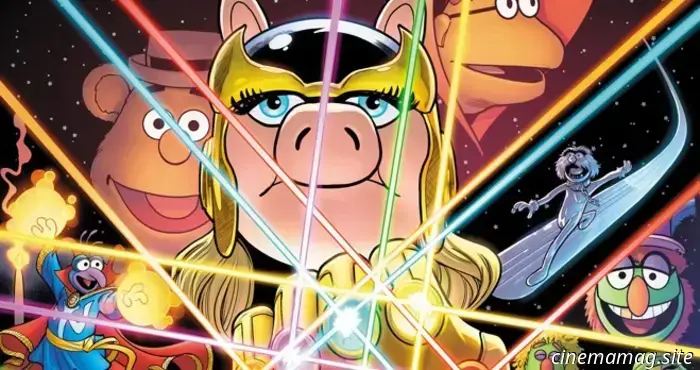 Marvel Comics reveals variant covers for the 70th anniversary of the Muppets.
In July, it was revealed that Marvel Comics would commemorate the 70th anniversary of The Muppets with a collection of mash-up variant covers. These covers feature Jim Henson's cherished characters placed into the Marvel Universe, recreating some of the most famous covers in Marvel's history. Take a look at all ten covers scheduled for release over the coming […]
Marvel Comics reveals variant covers for the 70th anniversary of the Muppets.
In July, it was revealed that Marvel Comics would commemorate the 70th anniversary of The Muppets with a collection of mash-up variant covers. These covers feature Jim Henson's cherished characters placed into the Marvel Universe, recreating some of the most famous covers in Marvel's history. Take a look at all ten covers scheduled for release over the coming […]
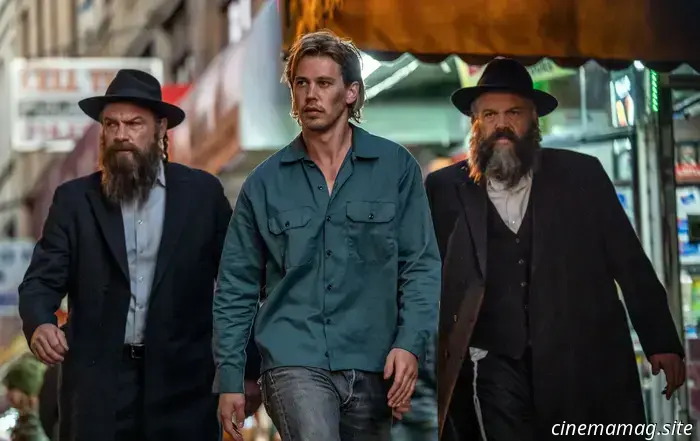 Caught Stealing Review: Darren Aronofsky Merges a Whimsical Heist with His Signature Harshness
Hank Thompson (Austin Butler) grew up immersed in San Francisco Giants baseball. He was named after one of the most important players in major league history, specifically from the time when they were the New York Giants, a clever reference by writer Charlie Huston, who adapted his own book for the film. In high school, Hank embraced his legacy with considerable confidence.
Caught Stealing Review: Darren Aronofsky Merges a Whimsical Heist with His Signature Harshness
Hank Thompson (Austin Butler) grew up immersed in San Francisco Giants baseball. He was named after one of the most important players in major league history, specifically from the time when they were the New York Giants, a clever reference by writer Charlie Huston, who adapted his own book for the film. In high school, Hank embraced his legacy with considerable confidence.
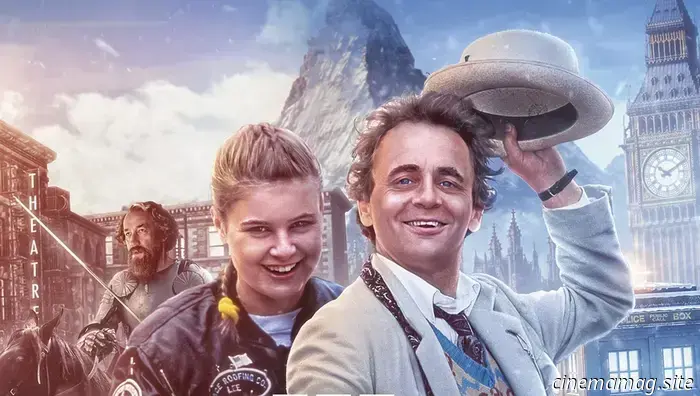 A fantastic new Doctor Who story featuring the Seventh Doctor and Ace is set to be released in October!
A fresh audio drama box set is on its way to Big Finish this October, offering additional escapades for the Seventh Doctor (Sylvester McCoy) and Ace (Sophie Aldred). Doctor Who – The Seventh Doctor Adventures: Wicked! transports the audience to the beginning of Ace’s journey in the TARDIS. This installment includes three […]
A fantastic new Doctor Who story featuring the Seventh Doctor and Ace is set to be released in October!
A fresh audio drama box set is on its way to Big Finish this October, offering additional escapades for the Seventh Doctor (Sylvester McCoy) and Ace (Sophie Aldred). Doctor Who – The Seventh Doctor Adventures: Wicked! transports the audience to the beginning of Ace’s journey in the TARDIS. This installment includes three […]
10 Excellent Films About Filmmaking
Simon Thompson showcases ten excellent films centered around the theme of filmmaking. The role of a filmmaker offers significant artistic satisfaction, yet it is also a demanding and emotionally challenging profession tied to a constantly evolving industry that frequently grapples with its identity as an artistic endeavor versus a commercial enterprise. It [...]
